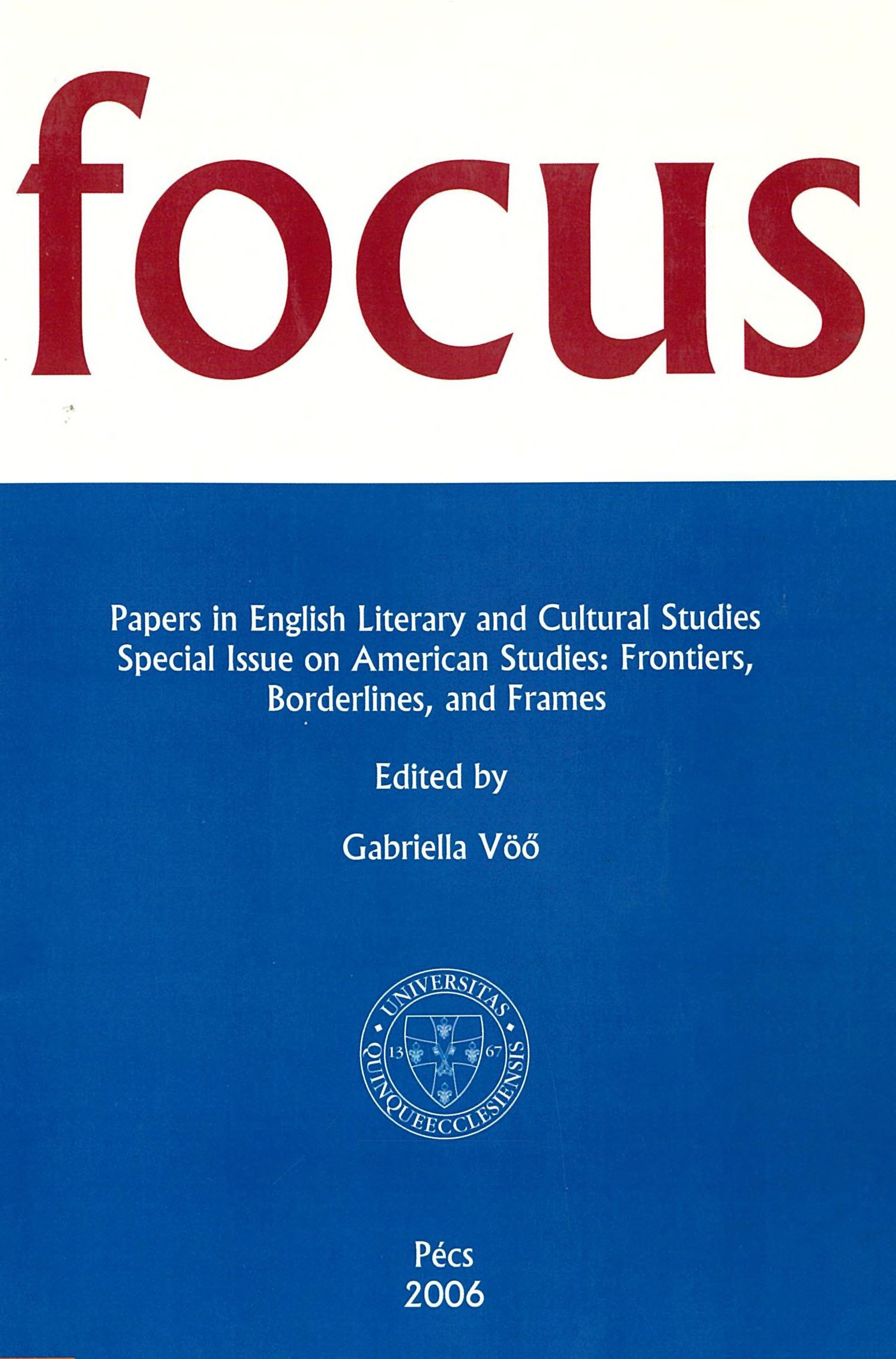Hollywood, the Mythic Border, in Sam Shepard’s True West and David Mamet’s Speed-the-Plough
Abstract
"He began to see as one sees a city with a wall about it. Men were posted at
the gates. You could not get in. Those inside did not care to come out to see
who you were. They were so merry inside there that all those outside were
forgotten, and he was on the outside." —Theodore Dreiser, Sister Carrie
Should the above passage be read in a university class, the majority of the students would probably find it hard to pinpoint the significance of the key conceit therein, while they would easily identify the man dreaming of the merriment of the insiders within those enigmatic walls. At this conference on “Frontiers, Borderlines and Frames” Theodore Dreiser’s “walled city” metaphor from his “truly amazing first book,” (Mencken qtd. in Virágos 78) Sister Carrie (1900), might strike us as a ready restatement of our conference’s central theme. As G. W. Hurstwood, one-time owner and manager of Fitzgerald and Moy’s in Chicago, is brooding over the causes of
his decline from the Chicago elite to one of New York’s derelicts, he picturesquely grasps the essence of class divide, the distance between the elect and the outcast, in the image of the walled city. The walled city that keeps the insiders cheerful and careless, and forever tempts the outsiders to long to enter her well-guarded doors, is, however, more than a simple paraphrase of social divisions. It is indeed what I regard one of the most brilliant border-metaphors in twentieth-century American fiction. Dreiser’s metaphor, expressive of social, economic, cultural demarcation lines within the large cities of early twentieth-century America, though quite remote in time and space from my immediate concern here, seems strangely appropriate to describe Hollywood and the manifold associations (cultural, social, historical) it brings up in popular consciousness. In the writings of America’s two popular contemporary playwrights, Sam Shepard and David Mamet, the image of Hollywood as a version of the walled city is frequently evoked. 1. In what sense are these playwrights connected to Hollywood—what borders do they have to cross to immerse themselves in the Mecca of America’s show business? 2. Why and how exactly do True West (1980) and Speed-the-Plough (1985) represent Hollywood as a border? 3. What other borderline crossings evolve in these plays on the level of characters, plot, and theme? 4. How, if at all, can we regard the inner textual “crossings” within these plays as part of a larger textual tendency, i.e., to conceive Hollywood as a mythic border. These are some of the questions I hope to explore.
Downloads
Published
How to Cite
Issue
Section
License

This work is licensed under a Creative Commons Attribution-NonCommercial-NoDerivatives 4.0 International License.
FOCUS: Papers in English Literary and Cultural Studies follows the principles laid down by Creative Commons, which provides guarantees for the Author’s copyright while also ensuring that intellectual properties are made available for the wider public in a digital form. All papers submitted to the journal apply the following licence conditions (indicated on the journal’s website as well as in individual publications):
“© This work is licensed under a Creative Commons Attribution-NonCommercial-NoDerivatives 4.0 International License.”
You are free to:
- Share, copy and redistribute the material included in the journal in any medium or format under the following terms:
- Attribution — You must give appropriate credit to the Author, and indicate the original place of publication [FOCUS: Papers in English Literary and Cultural Studies, Issue nr., page numbers.].
- NonCommercial — You may not use the material for commercial purposes.
- NoDerivatives — You are not allowed to remix, transform, or build upon the material.
- The above conditions must always be indicated if the journal material is distributed in any form.
- The above conditions must always be met, unless a written permission signed by the Author and the Editor-in-Chief states otherwise.

